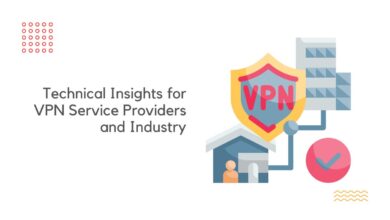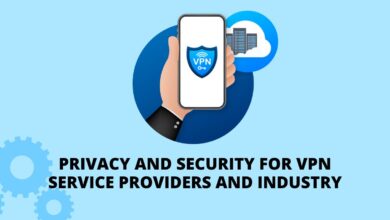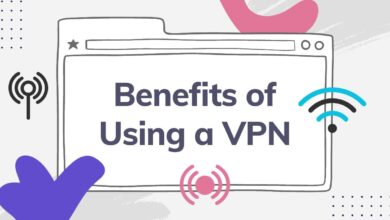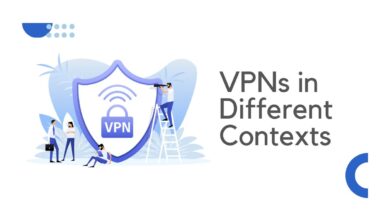VPN Legal and Ethical Considerations
Key Takeaways
-
From an ethical standpoint, VPN providers should respect user privacy and minimize data logging.
-
The EU has robust privacy laws like GDPR, which encourage the use of privacy tools like VPN. [1]
-
VPNs can be used to bypass geo-restrictions imposed by ISPs, often at the behest of governments or content providers. [2]
Virtual Private Networks (VPNs) have emerged as crucial tools in safeguarding your online privacy and security. However, with their increasing usage comes a complex web of legal and ethical considerations. Whether you’re a casual internet user, a corporate professional, or someone concerned about digital rights, this guide provides essential insights into the responsible use of VPNs.
Understanding VPN Legality by Country
While VPNs are legal in many parts of the world, their use can be restricted or heavily monitored in others. Here’s a more comprehensive look at VPN legality by country.
United States and Canada
VPNs are completely legal in the United States and Canada. They are widely used for enhancing privacy, securing data, and bypassing geo-restrictions. However, using a VPN for illegal activities, such as piracy or cybercrimes, is prohibited.
European Union
In the European Union, VPN use is legal. The EU has robust privacy laws like GDPR, which encourage the use of privacy tools. [1] However, the legality of what you do while using a VPN remains subject to local laws.
United Kingdom
Following its exit from the EU, the UK continues to allow the legal use of VPNs. However, the UK has extensive surveillance laws, and certain online activities might be more closely monitored.
Australia and New Zealand
Both countries permit the use of VPNs. Australia, however, has stringent data retention laws requiring ISPs to store user data for two years, making VPNs a popular choice for privacy-conscious users.
Russia
Russia has stringent control over internet freedom. The use of VPNs is restricted, and only government-approved VPN services, which may comply with state censorship policies, are allowed.
China
China has one of the most restrictive policies. The government bans most VPNs, and only state-approved VPNs, which offer limited privacy and are subject to censorship, are legal.
Middle Eastern Countries
Countries like Iran, Iraq, Oman, Turkey, and the UAE have various restrictions on VPN usage, often tied to censorship and control of information. In some of these countries, using a VPN can lead to legal consequences.
India
VPNs are legal in India, but the government has made attempts to regulate their use. This includes proposals for VPN providers to maintain logs, raising privacy concerns and security risks.
Japan and South Korea
In these countries, VPNs are legal and commonly used. They have liberal internet regulations and strong internet infrastructure, making VPNs a popular choice for privacy and content access.
South America
In most South American countries, VPNs are legal. Internet regulations vary by country, but there is generally more freedom in VPN usage compared to some other regions.
African Countries
The legality and use of VPNs vary widely across Africa. In countries with more restrictive regimes, VPNs are often used to bypass censorship and for secure communication.
Southeast Asia
Countries like Thailand, Vietnam, and Malaysia have varying degrees of internet freedom, and the legality of VPNs can vary. In some cases, VPNs are used to bypass censorship and secure online activities.
Understanding the Ethical Use of VPNs
The ethical use of VPNs hinges on a balance between protecting individual rights to privacy and freedom of information, and not using these tools for harmful or illegal purposes. It’s about being a responsible digital citizen while navigating the complex digital landscape.
Privacy Protection
Ethically, VPNs are invaluable for protecting user privacy, especially in countries with pervasive surveillance or where internet usage is heavily monitored. They allow users to maintain anonymity and safeguard sensitive information from unauthorized access.
Bypassing Censorship
In regions with restricted freedom of speech and access to information, VPNs can be ethically used to bypass government censorship. This is crucial for activists, journalists, and others who rely on access to unrestricted information.
Secure Communication
VPNs provide a secure channel for communication, which is essential for whistleblowers, human rights workers, and individuals in sensitive professions. This secure communication is vital for protecting the safety and privacy of the individuals involved.
Accessing Geo-Restricted Content
While using VPNs to access geo-restricted content, such as streaming services, isn’t inherently unethical, it can breach the terms of service of the platform. Users should be aware of the legal and ethical implications of such actions.
Avoiding Misuse
The anonymity provided by VPNs can also be misused for illegal activities, such as hacking, accessing illegal content, or engaging in fraudulent activities. Ethical use of VPNs implies not engaging in or facilitating such activities.
Corporate Responsibility
Companies providing VPN services have an ethical obligation to be transparent about their policies, particularly regarding logging user activity and cooperating with government inquiries. Users should opt for providers that are clear about their data handling practices.
Respect for Local Laws
Users should be aware of and respect the local laws regarding internet use and VPNs. While privacy is a right, navigating the legal landscape responsibly is also an ethical consideration.
Balancing Privacy and Accountability
While advocating for privacy, it’s also ethical to consider the broader implications of VPN use, such as the potential for evading accountability or facilitating illicit activities. Users should balance their right to privacy with societal responsibilities.
VPNs and Internet Service Providers (ISPs)
The use of VPNs in relation to ISPs encompasses a complex web of legal and ethical considerations. Balancing privacy rights with legal compliance, addressing net neutrality concerns, and ensuring responsible use of technology are key aspects of this ongoing discussion.
Privacy and Data Protection
One of the primary reasons for using a VPN is to protect one’s privacy from ISPs. Without a VPN, ISPs can track and log browsing data, which can be used for targeted advertising or handed over to authorities upon request. VPNs encrypt data, making it difficult for ISPs to monitor user activity and prevent stolen identities, which is a significant privacy advantage.
ISP Throttling and Neutrality Issues
ISPs sometimes throttle internet speeds based on usage patterns, particularly for high-bandwidth activities like streaming or gaming. A VPN can prevent ISPs from detecting such activities, thereby circumventing unfair throttling, which raises ethical questions about net neutrality and the rights of users to unrestricted internet access.
Legal Compliance
Both VPN providers and ISPs are subject to local laws and regulations. In some countries, ISPs are required to log user data and may be compelled to provide this information to government authorities. Similarly, VPN providers may be legally obligated to do the same, depending on their jurisdiction. Ethically, the tension arises when these laws clash with the privacy expectations of users.
Bypassing Geo-Restrictions
VPNs can be used to bypass geo-restrictions imposed by ISPs, often at the behest of governments or content providers. [2] While this can be seen as a way to access a freer internet, it also raises legal questions, especially if it breaches service agreements or local laws.
Responsibility of ISPs and VPN Providers
ISPs and VPN providers have an ethical duty to protect user data. However, the extent of this responsibility can vary. Ethical VPN providers should have clear policies regarding data logging and sharing, while ISPs are often criticized for their handling of user data.
Use of VPNs for Illicit Activities
VPNs can be used to conceal illegal activities from ISPs. While VPN providers advocate privacy, they must also navigate the ethical implications of potentially facilitating illegal actions.
Impact on Network Management
From an ISP’s perspective, widespread VPN use can complicate network management and traffic analysis. This can pose challenges in maintaining network efficiency and quality of service.
Educating Users
Both ISPs and VPN providers have a role in educating users about the legal and ethical implications of internet use, including the use of VPNs. This includes informing users about data privacy, security practices, and the legal ramifications of their online actions.
Data Logging Policies
Data logging policies for VPNs are a critical aspect of the service they provide, affecting user privacy and security. Data logging refers to the practice of recording and storing information about a user’s online activities. In the context of VPNs, this can include details such as browsing history, IP addresses, traffic data, session durations, and more.
Types of Logs
There are generally different types of logs:
-
Connection Logs: These logs record metadata about your VPN session, such as connection times, session durations, and the IP address you’re connecting from. They don’t include details about your actual internet activity.
-
Usage Logs: These are more detailed records that include the websites you visit, files you download, and other specific data about your online activities.
-
No-Log VPNs: Many VPN providers advertise themselves as ‘no-log’ or ‘zero-log’ VPNs. This means they claim not to store any information about your online activities. This policy is particularly appealing to users concerned about privacy, as it minimizes the risk of sensitive data being exposed or handed over to third parties.
Jurisdiction and Legal Compliance
The jurisdiction in which a VPN provider operates can significantly impact its data logging policies. Providers based in countries with strict data retention laws may be legally obligated to log and retain certain user data, even if they claim to have a no-log policy.
Risks of Data Logging
Logging user data poses various risks, including potential exposure to government authorities, hackers, or even the VPN providers themselves, who might misuse this information.





